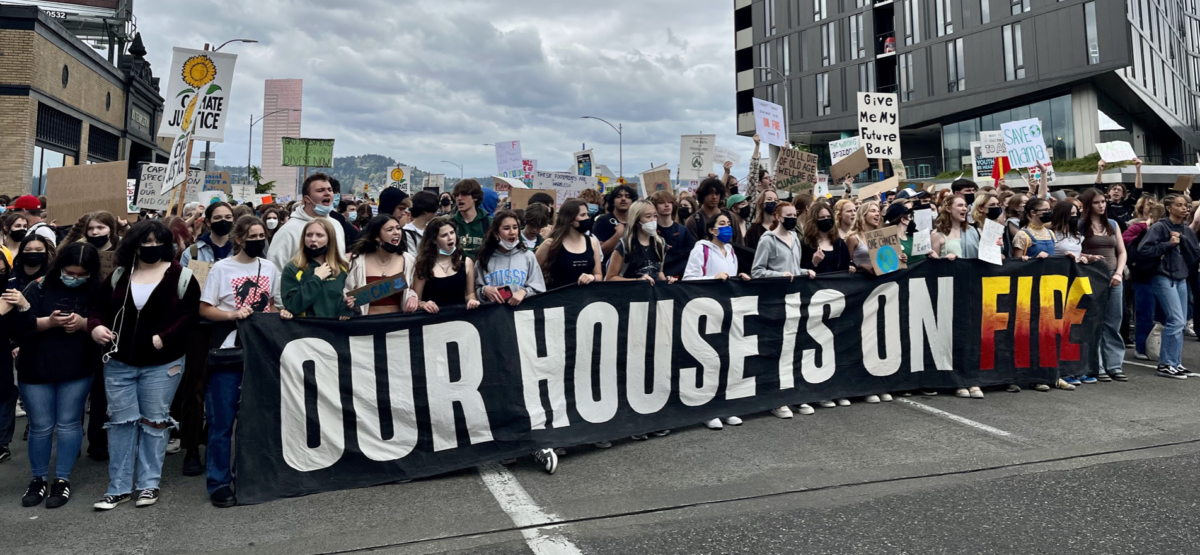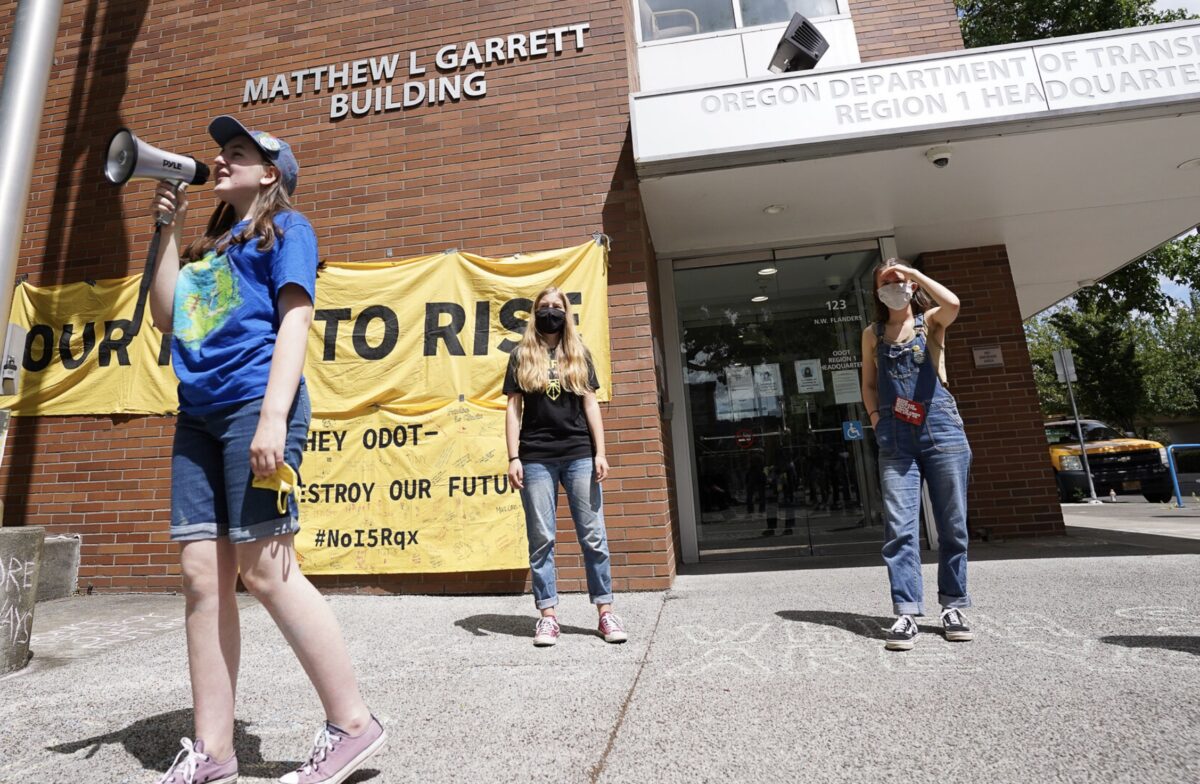
Youth are playing a major role in Oregon’s climate movement, but the flip side of their admirable passion and activism prowess is a looming mental health crisis.
A report released last week from the Oregon Health Authority (OHA) shines light on this crisis. While its conclusion won’t be revelatory to people involved in climate work, its insights provide legitimacy to an issue that has not gotten the attention it deserves.
The report, written by OHA’s public health division, categorizes the different causes and effects of climate change-induced mental health issues. There are a multitude of experiences youth have that will inform how they react to the crisis. People who have experienced climate-related disasters, like the wildfires that devastated Oregon in September 2020, will probably have a more different mental health response than someone whose wellbeing has been impacted over an extended period time by chronic climate stressors like drought or poor air quality. The report also addresses “climate anxiety,” which authors define as general fear and worry about the effect climate change is having on the planet.
“I think this report has the potential to make people think more… Just knowing that you’re not alone and a lot of other young people are feeling the same and having similar emotions can feel really good.”
-Ukiah Halloran-Steiner
Then there’s the dynamic between young people and well-meaning adults.
“Adults may remark in a well-intentioned way that they are inspired by the passion and determination of youth in advocating for action on climate change,” the report states. “However, youth may perceive that as adults alleviating themselves of the responsibility and placing it on youth.”
Young people have never been able to live without fear of the climate crisis, and they feel ignored by people in power who are not acting quickly enough to help avoid the worst effects of global warming. They’re not wrong to feel this way, either. While powerful adults have heralded youth climate activists like Greta Thunberg as a prophet come to save the world, they’re not actually acting on their pleas for policy change.
Young people in Portland who have been involved in the youth movement against the Oregon Department of Transportation’s proposed I-5 freeway expansion have done a lot to raise awareness about the environmental impacts of transportation. But the work takes an emotional toll.
Ukiah Halloran-Steiner, one of the leaders of the Youth vs ODOT movement, told me she became passionate about climate activism after the Labor Day fires in 2020, which were startling and scary. She said becoming involved in activist work has allowed her to talk to like-minded people and find support.
“Just knowing that you’re not alone and a lot of other young people are feeling the same and having similar emotions can feel really good,” Halloran-Steiner said.
But she’s skeptical this report will do much to spur action.

“I think this report has the potential to make people think more. But the report alone isn’t doing anything, it’s just informing other people about what a lot of people already know,” she said.
In the foreword to the report, Governor Kate Brown wrote a strong statement acknowledging the frustration some youth feel when trying to influence policymakers. But the Governor has so far shirked away from calls to take a stand against freeway expansions and youth climate activists want her to take a more aggressive stance.
At 25, I’m older than most of the youth surveyed in this study. But I strongly relate to the feelings they expressed. I remember learning about global warming when I was probably 8 or 9, and as someone with an anxious disposition to begin with, the threat of climate change seriously impacted the way I saw the world. I didn’t find comfort in talking to adults, who I found either dismissive or inappropriately alarming. My most memorable wake-up call was in sixth grade, when my science teacher spent the entire year teaching us about the greenhouse effect and showing us presentations and documentaries about the dying earth that sent me into panic and guilt spirals. I suppose this feeling was an impetus to action for me, but it has come at a cost.
While there’s only so much young people can do on their own to influence climate policy, the report has suggestions for things people can do to keep themselves mentally well while dealing with such a heavy issue. Among other suggestions, the report echoes Halloran-Steiner’s positive experience joining an activist community, saying many youth have reported finding other people to work with on climate action has been significantly helpful.
“If I need to talk to someone, I can go to people, we can all be mad together and find out what to do,” one youth said. “Meeting people like you all gives me hope.”
Read the report here (PDF).


